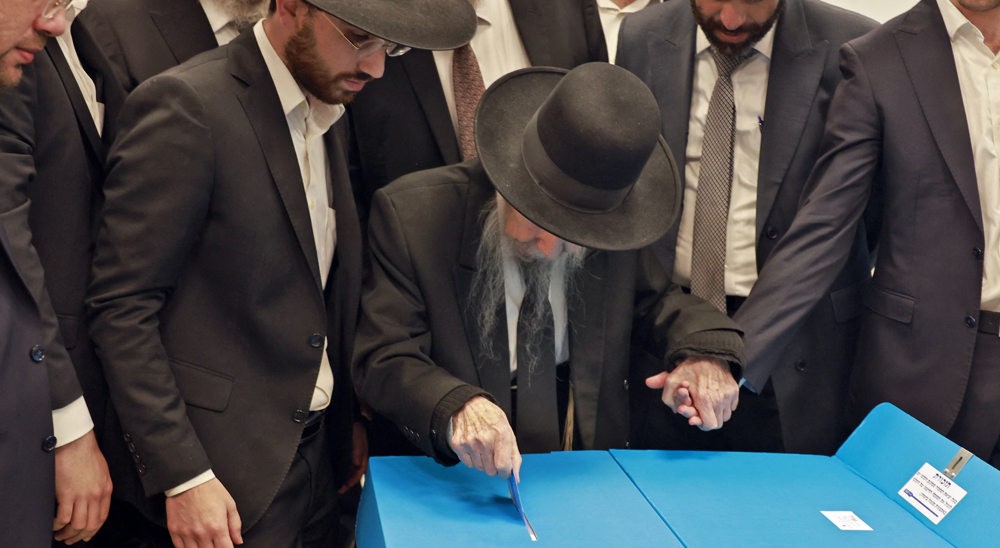Hamas: Israel cannot legitimize occupation of Palestine via elections
The Palestinian Hamas resistance movement says the apartheid Israeli regime is an occupying force in its entirety, and that it cannot give legitimacy to its occupation of the Palestinian territories by staging eletctions.
In an interview with al-Ahed news, Abdul Latif al-Qanou, a Hamas spokesman, highlighted rift and discord in the Tel Aviv regime’s internal circle, saying the Gaza-based resistance movement does not count on the outcome of the new elections, which are the fifth of their kind in less than four years.
The official said the entire Israeli regime, including its social, political and security components, is considered an occupying entity, and that all parties in Tel Aviv are hostile to the Palestinian nation.
Elections cannot legitimize the Israeli occupation, he said.
The Palestinian people, Qanou added, have “the right of resistance against the Zionist occupation which kills them.”
The elections, which kicked off on Tuesday, are a fifth attempt by Israel in only four years to end a paralyzing political stalemate in Tel Aviv, amid deep political divisions among the regime’s political parties that have prevented them from forming an effective coalition cabinet since 2019.
What are the odds?
Israel’s former scandal-hit prime minister Benjamin Netanyahu is bidding for his right-wing Likud Party’s comeback in the race so that he can return to the post, despite all the corruption allegations gripping him.
The final network polls provided by the Israeli regime before the November 1 elections have all predicted that Likud will fall just short of a majority in the 120-seat Knesset.
Surveys aired by Channel 12 and Channel 13 news on Friday, and the Kan public broadcaster on Thursday, gave the parties expected to back Netanyahu for premier 60 seats in the upcoming Knesset — one fewer than needed for a majority.
Meanwhile, incumbent Israeli prime minister Yair Lapid’s Yesh Atid was seen set to win 24-27 seats.
Just like in the previous four elections, Netanyahu himself — and the possibility of a cabinet led by him — is one of the defining issues, especially as his trial continues.
Netanyahu sees a comeback possible due to the alliance that Likud has forged with the far-right Religious Zionism party.
Additionally, some top center-right politicians, who agree with him ideologically, still refuse to work with him for personal or political reasons; therefore, in order to make a comeback, Netanyahu is likely going to depend on the support of extreme right-wing parties to form a coalition, and if successful, he may be forced to give their leaders ministerial positions.
According to Israeli media, Netanyahu in late August called for unity among the ranks of far-right Israeli parties.
Earlier in October, Israel’s Ynet news reported that it obtained a recording of extremist Religious Zionism Party member Itamar Ben-Gvir saying during an event that if he gets elected into the new administration, he will push for legislation to end the corruption trial against Netanyahu.
If no one gets a majority in the election process, another deadlock would dominate the political scene, while Lapid will be tasked with managing the Israeli regime’s affairs as a caretaker PM.
Israel held four inconclusive elections between 2019 and 2021, which were largely referendums about Netanyahu’s ability to rule while on trial for corruption.
This is while concerns are rising among Israeli settlers over soaring prices as well as a long-drawn-out political impasse in the regime.
D-8’s role in Iran’s economy after Cairo summit
China slams US as ‘war-addicted’ threat to global security
China ‘firmly opposes’ US military aid to Taiwan
VIDEO | Press TV's News Headlines
President Yoon Suk Yeol to be removed from office
At least 19 Gazans killed by Israeli airstrikes since dawn: Medics
Leader: Iran neither has nor needs proxy forces
US fighter aircraft shot down ‘in friendly fire’ amid aggression on Yemen











 This makes it easy to access the Press TV website
This makes it easy to access the Press TV website